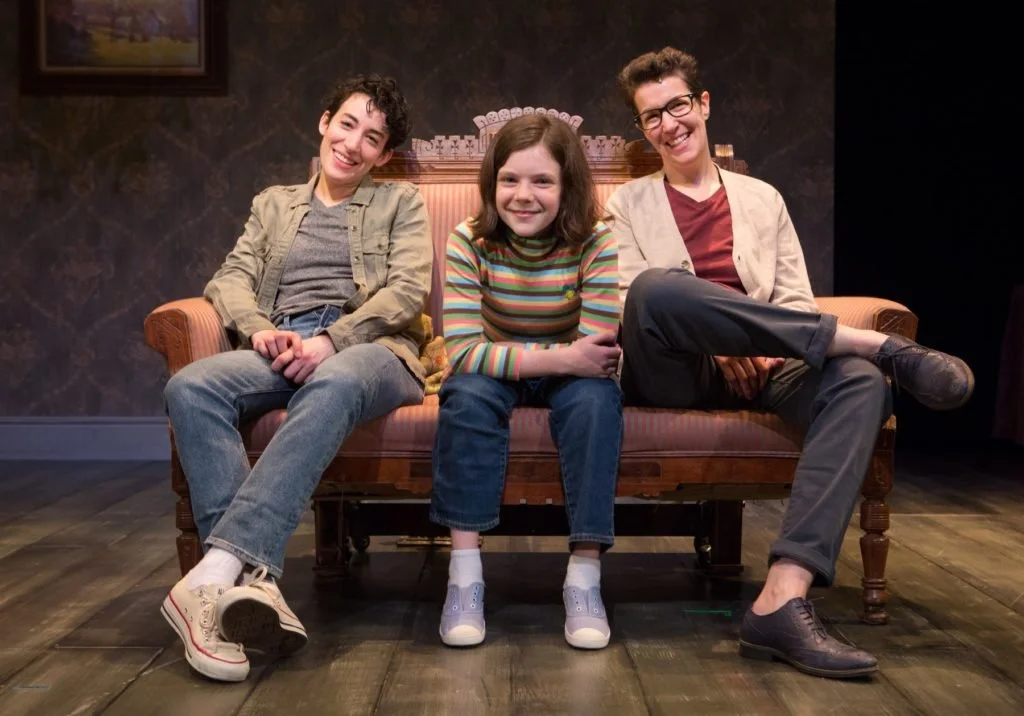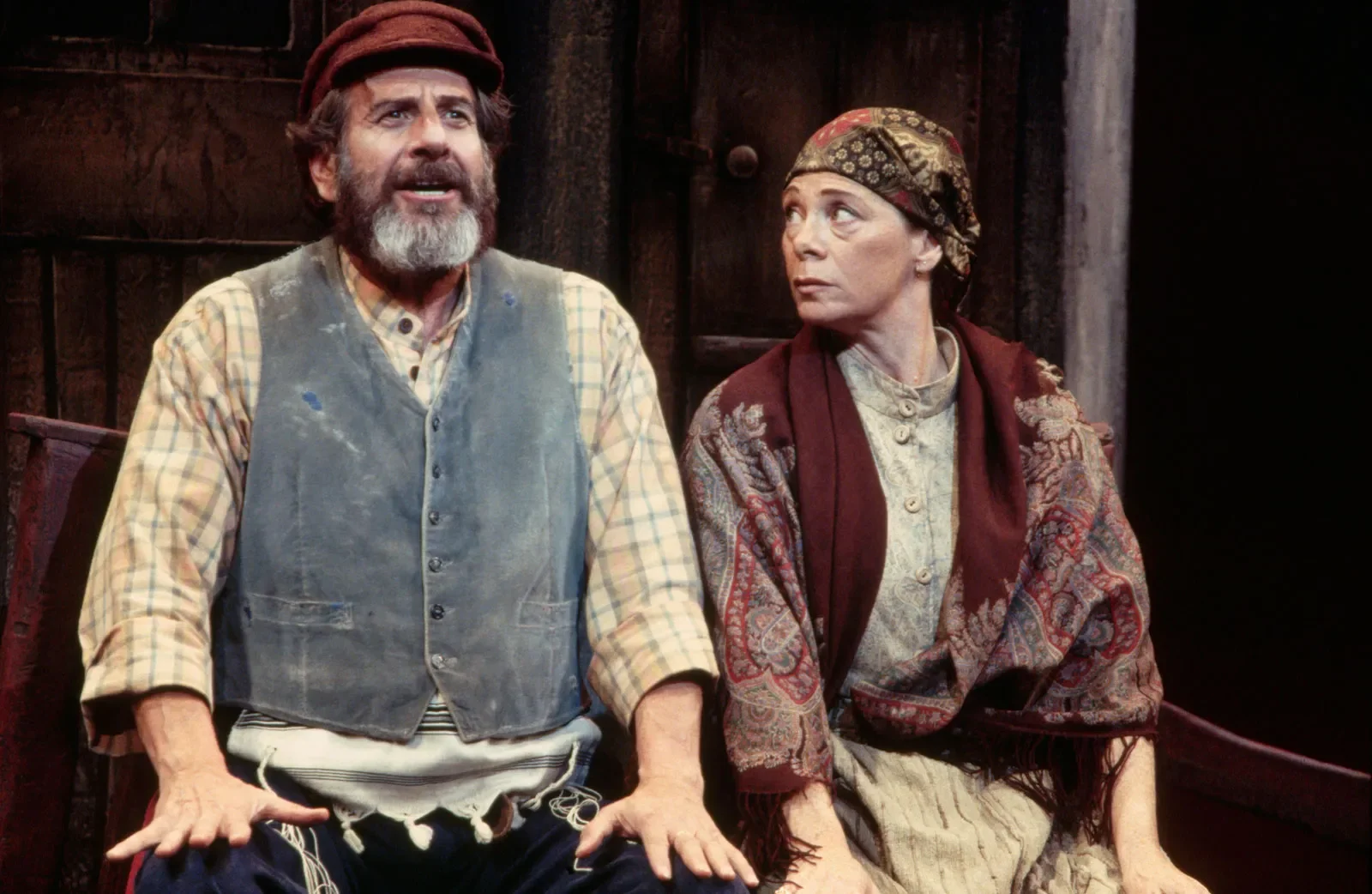Beyond Happily Ever After: 5 Musicals That Will Fundamentally Change How You Think About Love
We all know the great love songs of musical theatre, the soaring duets, the declarations of instant passion. But the most transformative musicals don’t just celebrate romance; they dissect it. They peel back the curtain on the complicated, messy and often heartbreaking truths of human connection.
If you are tired of the fairytale and ready for a deeper understanding of what it means to truly love, here are five shows that will permanently reshape your perspective on relationships, family, and commitment.
1. Hadestown: When Survival is Greater Than Sacrifice
The story of Orpheus and Eurydice is the quintessential tragic romance, but Anaïs Mitchell's Tony-winning folk opera challenges the notion that pure love can conquer all. The old rule says love is the ultimate sacrifice, but Hadestown argues that survival is the ultimate priority.
The show’s most profound, painful commentary comes from Eurydice’s choice. She isn’t dragged into the Underworld; she chooses the cold, comfortable security of Hadestown because she’s hungry and afraid. This illustrates that economic anxiety can be a greater threat to a relationship than a lack of feeling. Furthermore, Orpheus’s fatal glance back is not just a lack of faith in Eurydice; it’s a failure of faith in himself and his ability to hold onto an uncertain love, a heartbreaking moment of ordinary, human doubt. Love here means accepting inevitable failure and trying again anyway.
2. Company: Love is a Difficult Act of Choosing
Stephen Sondheim’s masterpiece dismantles the romantic ideal by focusing on Bobby, a perpetual bachelor surrounded by his neurotic, yet devoted, married friends. It doesn’t ask, “Will Bobby find love?” it asks, “Is love even worth the trouble?” If you think love is a magical state of being, this show teaches you that it’s actually a constant, difficult act of will.
The musical forces the audience to confront the emotional cost of partnership. Bobby’s friends are messy, they fight, they worry. The show’s core thesis is found in the song “Being Alive” Which moves from a cynical catalog of love’s demands (“Someone to hold you too close…”) to the powerful realization that those very demands are what make life vital. Love is not a safe harbor; it’s a terrifying, necessary exposure. The ultimate lesson is that you cannot truly choose another person until you have accepted you own solitude and decided that you are ready to be “ Alive, alive, alive.”
3. Fun Home: Love is Understanding Generational Trauma
Based on Alison Bechdel’s memoir, this show is a profound exploration of family love struggling against secrecy and shame. The old perspective suggests love is accepting someone despite their flaws. Fun Home argues that love is accepting someone because you understand their pain.
The tragedy is that Alison never had the relationship she desired with her closeted father, Bruce. Because he hid his true self, the family was trapped in a cycle of repression, teaching us that shame and self-denial are the real toxins that destroy family affection. The purest moment of love is not a hug, but the act of empathy - Alison’s adult self achieves a profound, retrospective acceptance of her father’s struggles. The musical beautifully demonstrates that the deepest family love is found in the courage to be authentically seen, even if that authenticity is realized too late.
4. Fiddler on the Roof: The Price of Progress in Love
This classic shows how the definition of love is a political and cultural battlefield that evolves rapidly across a single generation. It shifts the view from love as a simple union to love as a seismic force that breaks and remakes communities.
Tevye and Golde’s quiet relationship famously explored in “Do You Love Me?” is not passionate Eros, but the durable love of shared survival (Storge), built on 25 years of habit. This validates that love can be a decision built on comfort, not just chaos. The marriages of their three daughters then show the progressive collapse of tradition: from choosing a partner (Tzeitel) to following a partner into exile (Hodel), and finally, marrying outside of faith (Chava). The musical forces us to acknowledge that the pursuit of individual romantic fulfillment can require the painful destruction of cherished family ties.
5. Next to Normal: Love is Imperfect Forgiveness
This rock musical is an unflinching look at a family navigating a mother’s bipolar disorder and the devastating grief of trauma. It utterly rejects the idea that love is a magic cure for illness, teaching us that love is about remaining present, even when you can’t fix them.
The husband, Dan, spends the show trying to force his wife, Diana, back to the “normal” he remembers. His love is dedicated but fatally flawed because it seeks to control rather than accept. The musical is a painful portrait of how well-meaning attempts to “heal” a loved one can be a form of denial. The ending is not a cure, but a move towards authentic, flawed hope. The family members choose to build a new, imperfect life together, recognizing that their commitment is to the complex, wounded person in front of them, not to a fantasy of who they should be.
The Final Curtain
These musicals prove that the greatest love stories aren’t those that end with a big wedding, but those that force us to re-examine what we value most: the endurance of a shared history, the courage to speak our truth, and the agonizing, beautiful choice to show up for each other, even when we know the ending might be tragic.
Which of these challenging love stories will you be listening to next?




